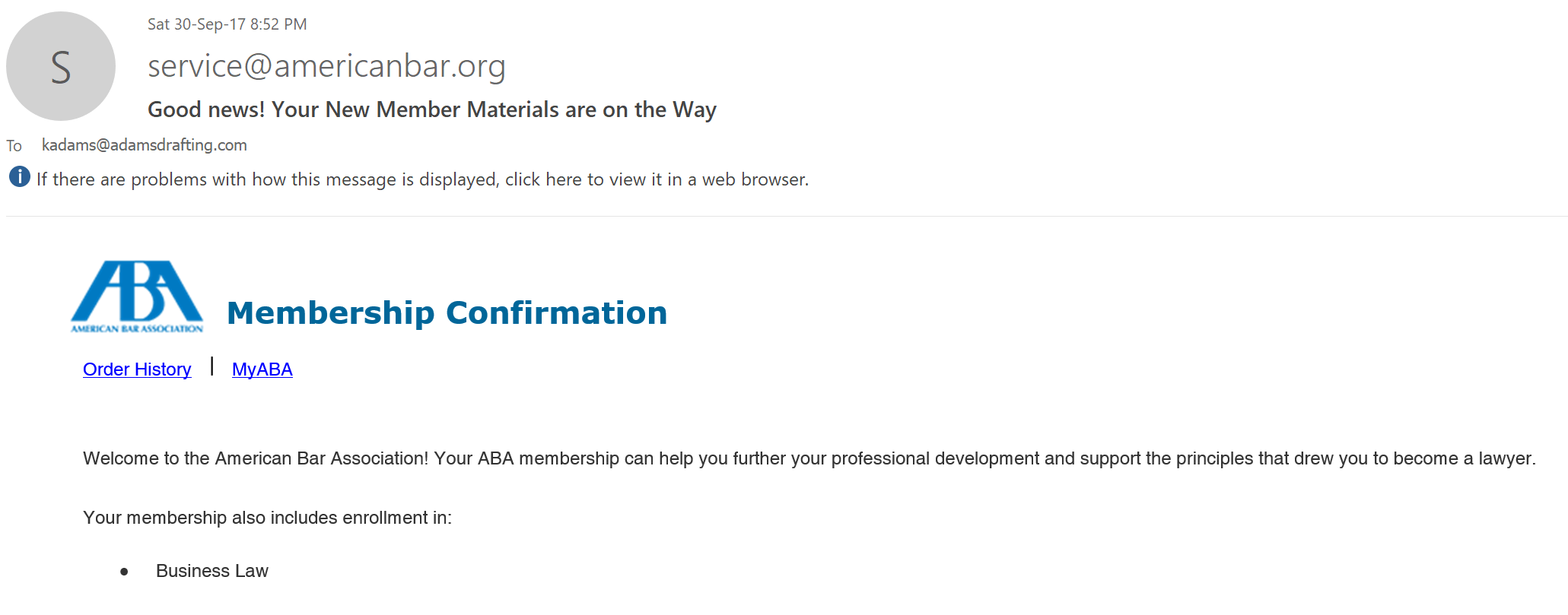It’s been years since I’ve been a member of the American Bar Association. On a sudden impulse, I rectified that over the weekend:
 One reason for my doing so is that the Section of Business Law is the publisher of A Manual of Style for Contract Drafting. And next year I expect to publish with them a shorter book entitled Drafting Clearer Contracts: A Concise Style Guide for Organizations. That by itself wouldn’t require that I become a member again, but my continuing not to be a member would start looking a little churlish, at least to me.
One reason for my doing so is that the Section of Business Law is the publisher of A Manual of Style for Contract Drafting. And next year I expect to publish with them a shorter book entitled Drafting Clearer Contracts: A Concise Style Guide for Organizations. That by itself wouldn’t require that I become a member again, but my continuing not to be a member would start looking a little churlish, at least to me.
But there’s a bigger reason.
I’m aware that membership organizations generally are suffering, and that certainly includes the ABA. In this glorious connected age, lawyers can for the most part find by themselves whatever information they need; you don’t need the ABA’s help for that. All sorts of organizations are looking to provide lawyers with continuing legal education, so you don’t need to belong to the ABA to get your CLE hours. And you sure as heck can network with your peers without joining the ABA. So what’s the point of the ABA?
I’m also aware that the ABA has a reputation for being conservative, even reactionary, preserving the status quo for members at the expense of the profession as a whole. In terms of my own needs, members of the Section of Business Law have expressed no interest in my expertise, or at least not in that capacity. For example, when I posted on an M&A-themed ABA discussion board a request for volunteers to read the manuscript of my short book The Structure of M&A Contracts, I had no takers. Some members have even told me they couldn’t be seen publicly endorsing ideas that deviate from the conventional wisdom.
But I think the legal profession needs the ABA. Perhaps not the ABA as it is, but the ABA as it might be.
For one thing, the ABA could help promote the idea of standards. Without standards, you have the cacophony of, say, LinkedIn groups. (See this 2013 post for more about that.)
And the ABA can do things that other organizations can’t or won’t do. For example, in writing The Structure of M&A Contracts, I benefited from being able to refer to one of the Section of Business Law’s “Deal Points” studies—its surveys of deal provisions contained sample sets of M&A contracts.
The information companies that serve the legal sector have the resources to develop ambitious products. But because the ABA isn’t driven by the need to show a profit, it can take on valuable projects that wouldn’t make sense commercially.
So as a gesture to what I hope the future might bring, I’m once more a member of the ABA.

I wonder if it might be possible for you to get some engagement from the International Bar Association? Clear and effective drafting of contracts is a bread and butter issue.
Good decision. The ABA is big enough for both Bryan Garner and Ken Adams!
*does spit take*